The Australian Bill of Rights Bill was not passed on the 24 March 2020. I have posted the details of the Bill followed by my own experience as to why an Australian Bill of Rights is Essential for Public Safety.
This is a link to Dr. Patch Adams and the fact he cried of Human Rights. He travels the world to the places where people are deeply disadvantaged. I travelled to Russia with him and I saw him cry over a little girl who was deaf and dumb, he made her smile, she was fascinated by him. I filmed their interaction. He is a deeply kind man. Kindness matters today and will change the future. Visit: https://wpas.worldpeacefull.com/2018/09/patch-adams-cried-over-human-rights-abuses/
https://www.aph.gov.au/Parliamentary_Business/Bills_Legislation/Bills_Search_Results/Result?bId=r6404
The bill will have no financial impact.
Summary
Gives effect to certain provisions of the International Covenant on Civil and Political Rights, the International Covenant on Economic, Social and Cultural Rights, the Convention on the Rights of the Child and the Convention against Torture and Other Cruel, Inhumane or Degrading Treatment or Punishment by: declaring an Australian Bill of Rights; providing that any Commonwealth, state or territory law that is inconsistent with the Bill of Rights is invalid to the extent of the inconsistency; specifying that Commonwealth, state and territory laws must be interpreted consistently with the Bill of Rights; and providing the Australian Human Rights Commission with a range of additional powers and functions in relation to the rights and freedoms in the Bill of Rights.
Progress
| House of Representatives |
| Introduced and read a first time |
16 Sep 2019 |
| Second reading moved |
16 Sep 2019 |
| Removed from the Notice Paper in accordance with (SO 42) |
24 Mar 2020 |
Documents and transcripts
You can open the pdf or Word document’s below to read about the rights the politicians didn’t want us to have.
Text of Australian Bill of Rights
Explanatory memoranda
Proposed amendments
No proposed amendments have been circulated.
Schedules of amendments
No documents at present
A Personal Rationale as to why an Australian Bill of Rights is Essential for Public Safety
In the public interest.
I have spent 7 hours non stop writing about why we need an Australian Bill of Rights. After my story I have pasted the government legislation that was proposed by Andrew Wilkie MP for Dennison (Tasmania). It clearly is not wanted by the majority of politicians as it wasn’t passed.
The 24th of March 2020 (5 days ago) was a day Australians will not realise was the most important day of our 200 year history. Australians were in the midst of having all their rights to movement shutdown with the spread of the coronavirus. We as a people, and others around the world, are experiencing dictatorial edicts for the first time where we are being told we do not have the rights to engage in business on site (must go online), we are learning new words like ‘social distancing’, people are becoming unemployed as millions are likely to lose work given many live from pay cheque to pay cheque and industries are being shutdown given a virus. I note that President Trump is stating his nation will go back to work next month as the virus affects the elderly and vulnerable and he sees that action can be taken to protect them and that the rest are healthy. Our government is saying 6 months which could completely collapse the Australian economy. However, on a brighter note people are talking about a new social contract, they get time with families, time to think about global issues and the sort of world we are moving into. So maybe this little virus is timely for transformational change. As we lose rights maybe we will gain more rights in the future as we awaken.
I’ve been inspired for some time to advance an Australian Bill of Rights. This writing below has been inspired as I wasn’t able to stop typing and went deeper and deeper into this topic as it is dear to my heart. This focus occurred as I experienced directly my own rights been violated and suffered greatly as I had to find truth to stop the pain I felt.
I have been denied the right to shelter, to housing, to social security (revoked due to conscientious objection to corruption), to early release of superannuation under severe hardship (no money, no shelter), to equality before the law (no access to legal representation).
Eviction
When evicted from my home due to a landlord breaching Council by-laws, there was no right to be rehoused. I was on a low income and had no ability to pay rent as rents were unaffordable. On route up north I was informed by a Centrelink officer (welfare), that I was not in equal partnership inside Centrelink, outside the system I have equal status. I said I am a citizen and I am equal. It made no sense that I give up my rights because they give me income support which is my right as a citizen under the Australian Constitution (Section 51, subsection 23a). Under a public/private contract system privatised job providers create a contract and have job seekers (welfare recipients) sign in a unequal agreement to activities which, in my case I knew would not get me work as I was professionally trained and I was having to apply for low wage jobs. The class system was evident in the welfare sector, had I been at a professional agency I would be given coffee, sit in plush suites and offered jobs starting at $50,000 – $200,000. At the privatised welfare agency I am offered $17 per hour in one case and I was not informed who the employer was, the treatment was evidently discriminatory breaching human rights but normalised in a unquestioned class system where a demographic serves. In addition to ineffective job provision I had real concerns about the program Work for the Dole which did not build skills but kept people working against their will, breaching the other human rights protocols. In a professional setting there is no way a person would accept working for no payment in areas that had no bearing on their work. It wasn’t even an apprenticeship training program. I have been to bonded slavery camps where people worked for free their whole lives and their fingers were worn to the bone. I was not lost on slavery.
Judiciary
In the Judiciary I was confronted with perverting the course of justice, misconduct and clear inequality before the law. I had no way to navigate the judicial system or have legal advice to ensure I knew my rights and had a strategy on how to defend myself to ensure justice happened. I was not prepared for legal trickery, deceptive conduct, using the courts for advantage, selecting judges, intimidation and demonisation. I knew I was confronting a form of subtle bullying using the fear of jail and costs to ensure compliance when I was innocent. I was even told that principled people get chewed up in the system, as if to be principled is a boon for lawyers, given they make more money if a person fights for what is right or moral, upholding principles as more valuable than making money out of cost orders or legal precedents. I found the comment disconcerting and at the same time an insight into those who seek justice and lose everything. Issues of misogyny were evident and inequality was in plain sight given comments about my low status and gender. Abuse was discounted as not important as I was the Appellant not the one who started the legal process. I lost my right to an Appeal given I was put through a process on another matter to then have it turn instantly into a quick Appeal then set aside. I was pressured, not unlike a forced confession, to sign an informal undertaking when the reverse is what happened to me. My perseverance was due to my desire to ensure a matter was resolved. The allegations I confronted were false and occurred after I reported sexual harassment. I knew the real loss was that the other party was not held to account, not as a form of punishment, but realisation as the behaviour causes harm. This included those in positions of power who were behind the attempted criminalisation (bullying) of the matter. If they are not held to account and justice not done then a silent green light conveys deception, misconduct and illegality works. This makes it unsafe for others in the future. I felt a duty of care for those coming after me who had no idea what they were up against. I didn’t want them to suffer as I had, I felt this duty deeply, particularly as an older woman.
I came to learn that lawyers are engaged in activities that are not honest and wording is changed to hide information legally and signatures changed. They play tricks as if it is a game that the uninformed can’t possibly see or understand as most haven’t studied a law degree for 6 years. I was most definitely at a disadvantage. I learned that judges were immune from prosecution no matter their conduct. I felt that was wrong as no-one should be above the law if we are equal. I discovered I had no right to have injustice addressed by regulators as my detailed report style of complaints were technically not accepted, although they were read, as I did receive a response as part of the rejection of the complaint. This in itself was a miracle but likely due to my 500+ page report. Again, analysis and justification in the regulator response was not accurate and implied mental health issues which appears a ‘modus operandi’ to discredit a person. What do you do when you are completely silenced and unsupported? Where to from here?
A last point, I spoke to a lawyer yesterday who left the legal profession as he saw Justice was not done. He didn’t believe in it anymore. He saw people get off crimes due to technicalities and he said it was ‘not right’.
The business of law is a key issue where the objective is profit not justice. Justice is a noble principle and I believe it is the very basis of peace building in our society. If Justice is not done then trust in public institutions diminishes and the law becomes a tool of abuse.
Corruption
This raised the issue for me of corruption and it made me feel more concerned as the desire to be heard intensified, it is like a cry for help. I saw and felt human rights as a central issue as it came up overtime again and again. With perseverance I found the words to express what had happened that was concealed but loudly felt in my experience. Unfortunately, human rights are hard to prove as abuse can be subtle and collusion covered over through collegial relationships and status. If you have no witnesses or advocates you cannot find parity or justice to ensure those in positions of power uphold standards, accountability, legality, transparency and justice. Their offices must be free of corruption as they may have many people under their control and if they do not respect people on a basic level they will do harm.
No Rights
The experience of not having rights leaves you in a position of utter powerlessness, or at least you perceive you are powerless as no matter what you do or say nothing happens, you cannot affect change. It is not unlike trying to defend yourself against an attack you cannot clearly see as there is no evidence trail but you know what is happening is harmful. You are confronting those who know the system and know how to remain unseen. Bullying is normalised and it is a key tactic. Bullying is a repeated negative behaviour, that is not a misunderstanding, but designed to intimidate and harm. You will suffer deep trauma as it goes on so long and you cannot understand why you are treated with such disrespect and lack of care. It personally hurts as the suffering is ignored. You will honestly assert your case over and over believing you are not understood, you then try to find a solution, you will seek help, you try to be heard, and you then seek another pathway to resolution via mediation so that the other party can understand how their actions impacted. Yet over and over you find people who see you as unequal as this sentiment permeates many areas, you become a number and unless you tick the criteria you are moved on. You know instinctively that parity must happen if social stability and harmony is to occur. If it doesn’t then toxic behaviour is rewarded and this becomes ‘how we do things around here’ as there is no rebalancing of the scales of justice. You realise you are not heard and a sense of no exit from the problem, as the path leads to a desperate desire to suicide. I have lay on the floor in the fetal position in agony desperately seeking the courage to finish. I had no mental health issue, it was in response to non-resolution, silent abuse (silent treatment) and the knowledge that I had no rights. It was extremely painful. I wrote so many reports as I had to solve the problem to find my power, as I felt disrespected and I realised my deeply felt values of equality were being confronted. It impacted me at a very deep level, it was more than cultural beliefs, it was a sense of my humanity being threatened. When you announce your experience of desiring to suicide to those in positions of authority they remain silent sending a message indicating they don’t care at all about your life. It weighs heavily on your heart as you realise you are not valued, respected and have no way of getting help. It is like a silent scream. You cannot let it go as it feels fundamental, much of what you feel you can’t articulate for a long time.
Truth Matters
In my case, I persevered as a peacemaker as I had to know the truth as I felt the pursuit of power and control was the barrier to peace in our community. I knew I had to find out and understand the nature of power. At times it is a desperately lonely road and isolating situation and you have to be very strong to survive it. Inner truth was a light in the darkness for me. To be honest spiritually this light grew brighter the darker it became as I had nowhere to go but within to discover the real power was my sense of love, peace and forgiveness directed towards others. My life felt threatened at a deep level and it awakened me to the importance of human rights. Until you go through the revoking of rights you cannot empathise with how incredibly hard it is.
Systemic Structural Violence
Violations of human rights is a form of structural violence that can’t be proved as a violent action but the actual structures are based on inequality e.g. income (access), private education (privilege, status), gender superiority, career path history and prominent groups who are silently validated professionally and ideologically. The public are not aware of these contrived signals, traditional pathways and economic structures that filter the right people into positions of power who share an ethos or membership of recognised groups and ideologies. Therefore, there is silent bias is in the system and this has consequences for those on low to middle level incomes who cannot afford prolonged court cases rendering justice out of their reach. This is how resentment builds in the community, it has its basis in unfairness due to inequality.
Freedom of Information is not free
Another area of inequity is the Freedom of Information (FOI) process that can be entered by the public to gain access to their own information held by the public sector (providing they are not privatised). In this process it becomes evident that users pay costs is used to charge people to access their own information. The barrier of costs means that people will not consent to long searches as they have to pay every 15 minutes in some cases or by the page and they can’t know the final cost or if they can afford it. Moreover, when making the request they can’t know or identify the person who would know where their information is as they don’t have insider knowledge. It is expected that they identify officers and dates. There are legal barriers to prevent access to information which is essential if the public need to check if information held is correct or to identify corruption, illegality or incompetence in information gathering, storage and accuracy. When you go through these processes you can see how lawyers have set the bar high to block sensitive information, particularly in contentious cases which is necessary for a functional democratic society. When this becomes difficult you know that the balance of power has changed and you are not being served.
Conscience or Power?
What became evident after many years was the fact that no response or accountability meant that conscience did not evoke change, only power moves people of influence. I believe there is a gender orientation, as women typically are emotionally tuned in and they will respond and empathise readily, with males it is harder, particularly if they are socialised to suppress emotions as a weakness and professionalism projects as control and unfeeling. I will add that some women can be this way if they are a masculine female. Some men can be feminine masculine which makes them more feeling. So it is not a hard and fast rule, to be fair. It became clear that abuse is about suppression of emotions, detachment and power behaviours not a simple misunderstanding. Within this context human rights abuses happen as people don’t feel naturally to rectify a situation or from a business perspective have a image or reputation to protect coupled with risk management strategies that protect the legal entity as the people are seen as a threat. It is very sad this has happened. As innocent people can suffer for years with no resolution at all.
Dismantling of Democracy and Globalisation
We are witnessing the dismantling of democracy, an unequal playing field, globalisation where money talks and the business ideology permeating the public sector as if this is efficiency and the public sector is inefficient. The reality in my opinion is that the public assets are viewed as cash cows and ownership (privatisation) of public assets ensures a sound revenue base given the secure flow of taxation dollars and if the public/private partnership arrangement is contracted in a Trans Pacific Partnership Agreement (TPPA) with large multinationals, they can sue governments if profits are impacted by cancelling a contract or some other form of disruption. The public have witnessed corruption and issues of corporate welfare where business is rewarded with profits whilst those in the most disadvantaged positions are treated with less rights, lower income and less access to desperately needed services. It makes you contemplate landlords and surfs – the surfs who should be grateful for the crumbs that fall off the table! They experience diminishing conditions, rising costs, abuses of rights and growing powerlessness and victimisation. The reality is that power as greed corrupts and corporate concentration (high profits) creates distortions in respect of democratic decision making as corporate donations curry influence or corporates enter politics to ensure favourable treatment or to ensure their industry profits from a restructured government sector. Thus the playing field is biased and increasingly causing harm to ‘We the People’ as those they serve are increasingly corporate interests justified as economic growth.
Silencing and Weakening of Dissent
There are growing concerns here in Australian in the silencing dissent, suppression of media freedom, changes to anti-discrimination legislation, strengthening of religious freedom (favouring one group over another) in a traditionally secular parliament, real income of welfare payments falling below the poverty line, privatisation of public services, increasing users pay for public goods (public sector assets) as ownership is gradually transferred through public/private partnership and the list goes on.
Sovereignty vs Foreign Interference
The most concerning issue that I realised was the Smart Cities agenda. This complete transformation of the economy is not understood by the public as there is no plebiscite to discuss radical changes to our lives. Although same sex had a plebiscite referendum which I believe some thought would fail. There are issues of foreign interference raised by ASIO and others. On the one hand the US is seen to infiltrate through IT sector and contractors and on the other hand there are issues of Chinese influence here. Others speak of Israel and on it goes. Sovereignty is a key issue and clearly if powerful interests are paying their way into changing our lives, We the People have a right to know given the public is paying for government and it is supposed to act in the public’s interests, not special interests.
Digital Transformation of Society without a Plebiscite Referendum
So if there are plans to disrupt the society with replacing human intelligence with artificial intelligence, or jobs with automation and digitisation of all public and private systems forcing people to use online for all their transactions, communications and activities, it sets up a scenario of a cyber reality replacing the physical reality and the implications for privacy are enormous and understated. Do the public want their identity demanded every time they transact? Do they want online tracking? Do they want voice recordings? Do they want facial recognition? DNA prints? Their debit and credit cards to have tracing chips where everything can be traced, profiled and categorised. Do they want iPhones that record everything we said generating algorithms directing paid advertisements to pop up acknowledging what is talked about breaching privacy with impunity?
Privacy and Metadata Gathering
The issue of metadata gathering is a huge issue for the public. It is often justified under the guise of national security, thus trading off rights for security asserting threats such as the war on terrorism. We then find out from whistle blowers that criminal cartels are operating at the highest levels of power and have been collecting data for years without our consent and still doing it. It is shocking as a citizen to find out about illegal black operations as disruptions and high level funding of crime e.g. Deep State and Shadow Government as referenced by ex CIA high level whistle blower Kevin Shipp. His videos explain the depth of this issue.
https://www.fortheloveoffreedom.net/
Citizens Feel Overwhelmed and Powerless
As a citizen this leaves you feeling that this is out of control. You feel completely powerless to do anything as politicians are not jumping up and down in outrage, then you wonder who you can trust? People appear positioned in sensitive portfolios to protect others and you think you are reporting to an authority to discover nothing is done, it raises real questions and fears about who is protecting the public interest as disclosures are protected and criminalised by legislation. How do we get the right to know what is happening in our government?
When corruption exists as a citizen, if you have bravely spoken up as I have, you don’t feel safe as you are not protected at all. You find out you phone is monitored by foreign intelligence agencies as I am a peacemaker. You realise that peace people are seen as a threat. The FBI are documented as having infiltrated peace groups which reveals a pro war stance. I was not anti-war in my work but more interested in developing inner peace and universal values refer www.worldpeacefull.com I have been astounded how I’ve been deemed a Person of Interest because I want a peaceful loving world. On radio I recorded whistle blowers and met a few and had no clue that this was deemed threatening, I was innocent in actual fact but just following a thread which lead me down a very long road to where I am now typing away here.
When a person is targeted, and in the knowledge of having dealt with lawyers, that your image can be manipulated, you can be set up, evidence falsified, you can be criminalised and your reputation called into question if you dare to challenge those in power. I realised that the left/right paradigm was really not true, it was more about challenging power and the need for power and status. I assumed I was equal.
I know I was vilified and categorised as left wing when I wasn’t left wing or part of culture wars. I found out more about these conflicts later as the real war in my view is about unfettered access to furthering commercial interests without inhibiters. The underlying issue is addiction to a way of life and the great fear of losing power. Those feeling threatened don’t sit down and question their fear, they will demonise and seek ways to silence rather than hear the critique which in truth is for their highest good. That sentiment is the same in reverse, a genuine critique of me is in my highest good. The fact no-one talks means we don’t know each other, just words on a cyber page and silently categorised without real contact and knowing of what the problem is and how to solve it. That is what a mature society would do. In our society we still fight wars without conscious understanding that ultimately these fights undermine the orchestrator of it and is a lose/lose for all. We are connected as humans and what we do to others returns. This is a universal law. That is why empires fall as Gandhi wisely observed.
When you go through these injustices it leaves you stunned and I would say the façade of democracy crashes down as you look for solid ground. Values for me is the solid ground, corruption is like shifting sand, you never know where you stand and you don’t know who to trust, even those I believed in fell from grace. I understand why people go into denial as they can’t handle the truth of what they thought was solid to be not real at all.
You realise in the system you have no power or ability to protect yourself from those who do not respect human rights and prefer to take all rights away. We’ve seen the US and Israel leave the United Nations Human Rights Council. This is extremely concerning and yet there is no real response to it.
From a public point of view, it is very frightening where we are going and we have to stop and think deeply about this direction as it will impact the children’s future. For myself I see a Brave New World, rising fascism, white supremacists, secrecy, paedophilia, secret societies, monitoring the public, targeting people, secret police forming, misinformation circulating in layers, growing inequality (weakening rights and access), deception (off balance sheet or private status), selling off public assets which renders the public having no rights yet still paying taxation for services they have to then pay for again (users pay) when it should be free.
Public/Private Organisations and Partnership
The Government Organisational Register reveals how many government departments, government organisations and contractors are engaged in government activity.
Refer https://www.directory.gov.au/reports/australian-government-organisations-register
See listing of the categories. The most interesting graphics were found at this link:
https://www.directory.gov.au/sites/default/files/agor_summary_of_key_statistics_2019-12-31.pdf
Footnote from Summary of Key Statistics:
- Principal bodies (Blue)-bodies connected with government policies, purposes or services which are prescribed under the Public Governance, Performance and Accountability Act 2013 and the related rules.
- Secondary bodies (Green)- committees, councils, boards, statutory office holders, consultative bodies and working groups linked to the Australian Government.
- Other bodies (orange) – Subsidiaries of corporate Commonwealth entities and Commonwealth companies; Joint ventures, partnerships and other companies; National Law bodies; and, Bodies linked to the Australian Government through statutory contracts, agreements and delegations.
The pie chart and bar chart indicated only 15% (Primary, blue) of departments are accountable under the Public Governance, Performance and Accountability Act 2013.
The secondary, other (green, orange) colours appear not to be accountable under the Act. For me the issue is government oversight and public rights (through ownership). I felt concerned at this private/public arrangements and what that means for human rights and citizens rights.
Note the ‘other bodies’ (orange) reveal higher proportions in the Departments of – Finance, infrastructure, Transport, Cities and Regional Development (Smart Cities is in this portfolio) and Prime Minister and Cabinet. Does this mean other influencers who are not the public?
I am concerned there are complex multifaceted agendas going on that are not validated by the public interest test. Given my experience I do not feel the public are safe if they speak up and this challenges power, hence the increasing feeling of repression and laws changing. I do not believe I am safe when all I want is a peaceful world but I have challenged power in order to speak the truth but not with a negative intention but more an investigative challenge as I felt something was wrong and I felt duty bound to say something as people are often too scared. I don’t have children or a partner so I have nothing to lose. I don’t even have assets.
Good Governance Supports Freedom
I can’t live in a world where I am not free to determine my own life, to live my own dreams and to express who I am without fear or reprisal. I don’t want to live in fear but in hope and inspiration. I can’t live in a world that does not respect the people or pathologically cooperates in order to change systems to benefit the few allowing many to be harmed. I have real concerns about capitalism without government oversight. I am in support of good government. I do not want the government to fail
I want to live in a world where everyone lives to their highest potential, where they express their voices, talents and build together a culture of peace where we learn to live in harmony with other cultures, ideologies, religions and utilise differences to creatively expand our civilisation together. I believe there is greatness in the public that is suppressed due to the way we have structured via economics and power. I want to live in a community where we feel happiness and productivity is measures by wellbeing, caring and Gross National Happiness rather than infinite economic growth that only denudes resources and encourages market concentration of power favouring one group over another and excessive exploitation not only of people but the planet. I want to live in a world where we can use our creativity to envisage a better world to ensure our environment is protected, our wildlife do not become extinct, the oceans are not fished out, that the earth systems are not polluted, damaged or radiated causing cancer. I want to live in a world where the public around the world have a say over their lives and to have a genuine vote in a system that serves people without the need to control or rig the outcomes.
Despair at the Loss of Equality and the Indifference to Violence
I have cried at the loss of egalitarianism (equality) in my country which is what we are famous for. I have cried at the Royal Commissions into abuse of children, the elderly, disabled, mental health causing harm to those vulnerable. I have cried at the incarceration of people in private jails who are innocent, forced to work or abused inside and outside are always labelled as ex criminals (no reform or forgiveness). I have cried for innocent refugees incarcerated in the offshore detention centres desperately uncertain about their futures, left to waste for years in detention, suffering psychological abuse, separated from families and desperate to the point of suicide, some sewing up their lips and their lives oversighted by private companies with military connections. I marvelled at the billions spent on these centres when they could have roamed freely around society until their applications were processed.
Actions Taken in Our Name Harming Disadvantaged Persons
As a citizen I am dismayed at what is happening in our name and my own treatment as a citizen who has so much to offer my society yet when perceived as unemployed or homeless I experienced discrimination on the basis of the protestant work ethic and business paradigms. I was even told that I was economically unviable because I was serving society and not placing a money value on my vocation. I am different I am not motivated by money, what moves me is love and this sense of duty of care. I sit here aching in my arms and legs having sat for 4 hours straight. I feel passionate as the desire to communicate is so strong. It comes from the deepest part of who I am, it comes with innocence as truth from my perspective must be spoken as my right to freedom of speech is essential for my wellbeing. I desire to contribute to democracy and the right to be human (human rights).
The Duty of Citizenship
I felt a strong sense of citizenship as a duty to speak up as I am a peacemaker. I dreamed I was teaching peace not as a political statement but as a state of being. I have concerns for the public wellbeing, health and safety.
Other health issues such as electromagnetic frequency (EMF) radiation emitted by iPhones, computers, electronic devices, smart meters (electro smog) as Wi-Fi is powering the Internet of Things (IoT). EMF and 5G are reported by a growing number of experts in the media as detrimental to the health and safety of citizens and that inappropriate and inadequate testing has occurred given industry influence in government and this determined push to roll out this IT SMART technological future. It is evident that private studies skew information as Al Gore demonstrated with environmental studies, the same applies with EMF.
Lobbyists and revolving doors
The issue of lobbyists is a big issue as they have the resources, expertise and strategies to impact policy, influence politicians and divert public resources to specific industry interests rather than to benefit the public. Profit is the big issue here as they are utilising this mechanism as a strategic marketing approach to garner influence and market share. Australia has a Registry for Lobbyist and you can gain an idea of who is influencing decision makers. It should be noted that influence can be done without money and can be in-kind and hidden in creative ways. However, this link gives an idea of registered lobbyists seeking the best outcome for their industries. https://lobbyists.ag.gov.au/register
In addition, lobbyists can go one step further and enter Parliament to advocate for industry interests not the public. This has been clearly evidenced in the United States where each politician has an industry or foreign power influencing their decisions. The Federal Communications Commission head Tom Wheeler who formerly worked as a venture capitalist and lobbyist for the cable and wireless industry. Many speak about the revolving door into industry back into government on a wheel. Wheeler was critiqued for not providing stringent testing for 5G but rather focusing on industry profits which appears the weakness, as government becomes a business not a representative of the public. The public can’t match this type of power or influence as people are individuals not operating as a group, many have been made to feel they have no power or say and then they turn off in resignation. This is where the people lose power. I felt the same but I persevered and used my experience to learn about power and look for empowerment and insight as the people do have power when they come together.
Smart Cities Technology and Potential Weaponisaion concerns
Weapons experts and ex intelligence officers become whistle-blowers and reveal the intelligence community is being privatised (and weaponised as contractors for private business) and this creates greater risks in respect of public oversight and civilian safety (if deemed the enemy).
The Smart Cities technologies are sold as labour saving, predictive, automating households. The NBN networks are sold to provide better downloads yet no information is lost as ex PM Malcolm Turnbull famously said. You research and learn of Smart Meters with sim cards sending data to overseas private companies who gather and compile data determining movement in the house, technologies used, mapping household activities, behaviours etc. without any input from the public. Then you hear military experts like Mark Steele (ex Naval weapons expert) saying that public infrastructure of lighting can be weaponised through LED lights as energy directed weapons. You discover lights can be used to track and triangulate iPhone locations, gathering personal data, profiling and identifying people as mentioned by the US whistle-blower Edward Snowden.
As a citizen I actually feel very uncomfortable when I see cameras in lights. I have been to Russia and this appears worse to me than any politburo. I have been facially recognised, after I attended a Senate hearing into AFP and Press Freedom. I gave a poem ‘We the People’ to Senator Kristina Keneally who I recall indicating there will never be a Charter of Rights. I saw a parliamentary secretary look at me, and tap into a computer. The next day or so I was walking across a plaza, only person there, a bright light came on and a camera, I saw police insignia. My mother was driving her car at night, which I drove to Parliament, she was pulled over by police a few days later. Ironically I was walking and saw the flashing lights in the distance, I didn’t know she was being pulled over and breath tested. We both believe the police thought it was me. It makes you wonder about random drug tests, the collection of everyone’s mobile numbers, IDs, DNA and the intensive monitoring of the public when the issue of violence has not increased other than overseas activities which today are being questioned. So I don’t feel confident these technologies will protect me, I am more concerned about being harmed by those who do not value the freedoms and values I deeply internalise and defines democracy as my culture.
Foreign Interference Impacting Rights
The issue of government allowing of unregulated foreign IT high tech and telecommunications companies to breach privacy and using data as the new gold standard as billions and trillions can be made by advertisers and associated industries accessing private information for commercial use and resale as a market.
Again, the targeting of those who disagree or dissent with what is happening can be quietly designated as a form of ‘enemy’ is of great concern in democratic societies. It is not the same as breaking a law and legal action, this type of targeting is of an intelligence nature and removes problems illegally. That is the concern.
The public in democratic societies are not aware of what oppression is about. They still believe they have the right to speak up, they do not know that the democratic principles are changing to a technocracy where rights will be based on access (consent). No access will occur if you don’t agree with terms and conditions, so you lose the right to say ‘no’ and it impacts your quality of life. The company protects their legal rights. Thus sections of the community could become increasingly unsafe as those monitoring do not hold the same democratic beliefs or basic respect of human rights and equality. This is the core issue.
So what can we do?
How can we be protected if we don’t agree with this
Brave New World?
Homeless have No Rights
I became homeless because I didn’t agree with the job provider system and I refused to give consent (sign a contract) with private organisations that were not delivering jobs or real options and pathways. I was cut off income support (revoked access) as I couldn’t comply with corruption and my democratic right to say ‘no’ to what I believe is not in my interests or harmful to me. I realised private companies were profiting from disadvantage and rorting the system given ABC 7.30 Report disclosures.
When I became homeless I didn’t know that if I was not on Centrelink for 26 consecutive weeks I lost my right to access homeless services. I lost my right to access superannuation even though I am in severe hardship. I contacted politicians and today believe that I was vilification given my rights were not upheld under the Australian Constitution which had far reaching implications. I had no shelter and no income. I couldn’t get a basic income or emergency payment as I was outside of the system. I contacted politicians received confusing letters transferring responsibility to others, others signing letters, referrals and no outcome at all or no response. The latter was concerning as I recall politicians always responded. Today they don’t and I wondered if it was because I was not deemed important or an industry representative– so status as access.
I contacted the homeless sector, spoke up at conferences, but not one approached me to offer help or advice. I was not informed that I would not be able to access the sector without Centrelink which meant I kept bumping up against more walls. If I hadn’t already been through this silent treatment it happened again. There was no compassion. No pathway. No help as again my life had no value whatsoever. People just did their job and went home to their warm bed. The same issue I confronted with Centrelink and the privatised job provider system was evident again in the homelessness sector. Privatised companies making money out of those in desperate need of help. The homeless I spoke to and interviewed for radio told me that the rooming houses were charging $250 per week (same amount as Newstart allowance, welfare) so no money for food or anything over and above. Another was begging made $7 in 7 hours. Another was having a liver transplant and had been discharged from hospital in the awareness of homeless status. I’ve been told by a nurse that psychiatric or mental health cases are discharged onto the streets. Very concerning. Another complaint was private belongings stolen in homeless accommodation and no respect by those running the accommodation. Another spoke of police brutality towards a homeless woman. Another spoke of rape and sexual issues another mentioned paedophilia. A young woman’s mother died and she was rendered homeless. A young man couldn’t get work became homeless and had a drone monitor him he stated. He had been to jail as a man was rude to him and he had a fight. He was giving up on the system, it was very sad. I met a lovely older man who was sick and couldn’t afford food. Another was on drugs as his son had died and he needed to cope. So many stories, tragedies, no support, stigmatisation and the list goes on. Until you walk in the shoes of a person experiencing homelessness, you cannot know the reality and the human rights abuses. To not give a person shelter when clearly there is plenty of money is contempt for those in hardship as they are not economically viable. We witnessed billions coming from somewhere for those rendered homeless in the fires (although some reports say the money wasn’t distributed), in the coronavirus situation billions are being made available. So it sends the signal that homelessness could have ended for 116,000 people but the decision was not made based on the value of housing a homeless person compared to a project that brings in economic dividends. Profit over people is the old adage. Materialism over humanity. We can probably find many dichotomies to highlight the problem.
An Australian Bill of Rights
An Australian Bill of Rights is essential as vulnerable people cannot stand up for themselves, they don’t have the education, the money or the status to be treated as equals and with dignity. Many don’t vote as they know there is no advocacy for them even though they are citizens. Some call them useless eaters as they are not valued in a technocratic world where access is about income. The cashless card issue means that people can’t beg for money or purchase without being traced to retain privacy, so they are not, in my view, stalked. I regard surveillance without any violence issue or threat as a form of stalking. I’ve been through the most difficult situations were my wellbeing was ignored and when I had cancer and suicidal no-one cared at all. I came to experience a mindsets that were detached and disconnected. There was no empathy and it raised alarm in myself as I saw those with this type of disposition as dangerous. I felt it as a duty to not remain quiet, but when I did speak up I put myself in harm’s way as those in powerful positions want me to be silent. So for people like myself An Australian Bill of Rights could have removed all the pain and suffering I went through as it set the high bar of an Australian standard enforced by just laws. Over a decade of seeking a fair resolution to never even receive an apology. The refusal to hold people to account means a Bill of Rights would have the power to ensure the public are not used and abused. To see that this bill was dumped tells me the reality I face in respect of my human rights being protected. What does the International Civil and Political Covenants mean if basic rights are not valued? What about the Economic Cultural and Social rights Covenant? What about the Universal Declaration of Human Rights? The Equal Opportunity Act or the Australian Human Rights Commission?
Do we just abandon what every soldier fought for, what we have all worked for and identified with? Do we just go with the money and leave human rights and ethics at the door. Who do we want to become? Do your values and actions matter? Absolutely they do.
My hope is that MP Andrew Wilkie, the former Office of National Assessment Intelligence officer turned whistle blower re-submits this Australian Bill of Rights and I would ask him to NEVER GIVE UP. As those of us homeless without income and left utterly without any real redress or power they need to have protections in a world increasingly disconnecting through technology, rewiring the neural networks in the brain (STEM, computers), losing empathy, losing community and a sense of responsibility (even to protect) for each other, increasingly self-interested, rewarding greed not kindness and moving towards this Brave New World that desires full spectrum dominance.
I believe I experienced this Brave New World ahead of others. I did communicate it in another report to government and clearly that was not received in a democratic mode of respect or at the very minimum, problem solving. It is not a world I have voted for and I will not be living in this world. My world will be one of peace, love, kindness, respect and unity. My world will encourage every person to live to their highest expression, to live out a life based on what they feel called (or inspired) to do and where we see ourselves in each other and know what we do to another returns to the self. That life has a natural justice and as we harm others we harm ourselves. This world is about higher truths, higher values and integrity where we no longer need a Bill of Rights but automatically we accord rights as we value everyone equally. That is how I live today.
MP Andrew Wilkie is an extraordinary politician. He introduced an Australian Bill of Rights into the Australian Parliament in 16 September 2019. This bill accords a clear Bill of Rights to all Australians. It will assist in ensuring we treat each other with respect and equality and retain our democracy.
Sadly this bill is one of 16 bills NOT PASSED.
In this blog I have shared from my heart all the reasons why a legally enshrined Australian Bill of Rights is critical for public safety. It will save lives and stop abuses. That is my deepest wish. I send this wish out like a ‘forget me not’, I blow my words like seeds and pray that they take root in the heart of another soul who shares my deepest wish, then they blow their words as wishes and another plants a seed. In the end we have a garden, a forest and a renewable earth. Join with me in wishing this into reality.
Thank you for reading. I am grateful. May it serve others.
NOTE:
My websites and blogs have emerged from my questions and visions for a better world as I seek to explore the barriers to peace in our world. May our happy destiny be unavoidable.
www.worldpeacefull.com
http://ha.worldpeacefull.com
https://biz.worldpeacefull.com
http://wpas.worldpeacefull.com
https://pftw.worldpeacefull.com
http://blog.worldpeacefull.com
http://aus.worldpeacefull.com
http://happy.worldpeacefull.com

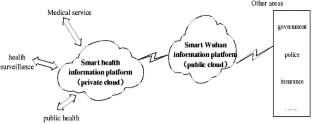
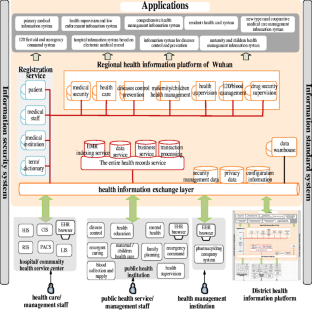
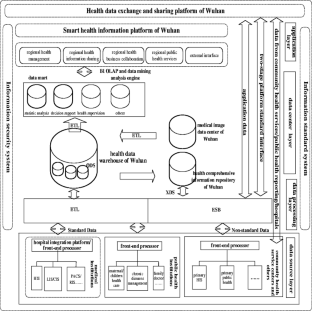
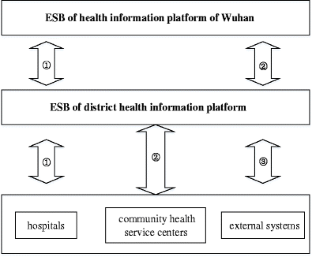
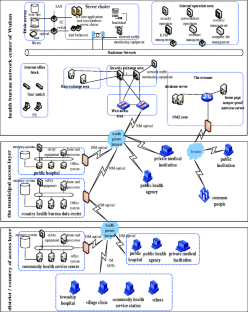
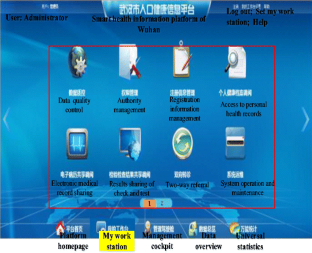
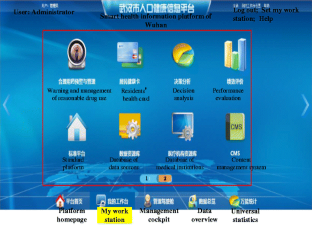
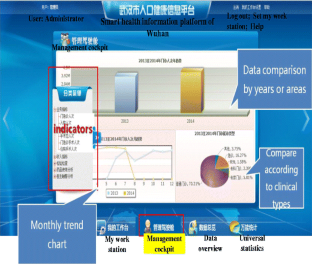
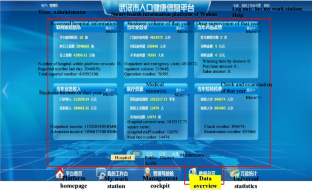
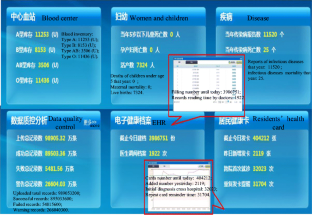
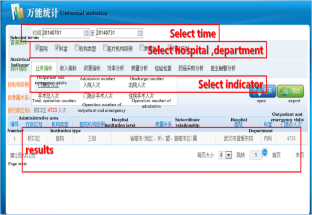
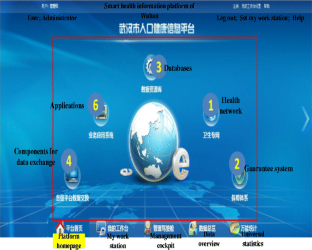
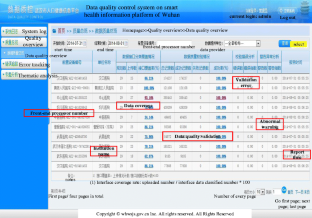
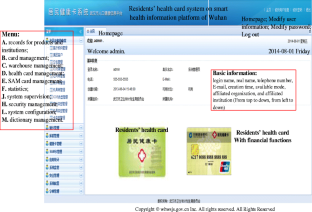
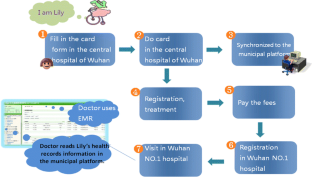
 Carbon Creative is 100% Indigenous owned and operated and is a Supply Nation certified supplier.
Carbon Creative is 100% Indigenous owned and operated and is a Supply Nation certified supplier.


